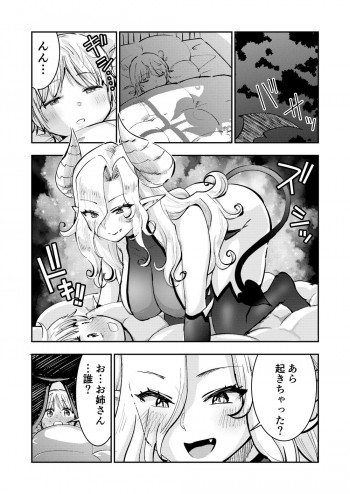Summary

The Ash Bride
by Paris Alexandra
How does the beloved Goddess of Spring become the feared and terrifying Queen of the Underworld?
When Persephone finds the love of her life dead she pleads with the Olympians to bring him back to life. Upon their adamant refusal, Persephone takes the only other course of action available to her and calls upon the King of the Underworld.
Hades agrees to help her on the condition that she marry him, and leave the mortal to live out his life without her interference. Persephone reluctantly agrees, believing the love she had shared with Pelops to be deep enough to overcome anything, even her new husband.
Furious with Hades for not only forcing her hand in marriage, but taking the man she loves from her, Persephone resorts to cursing him. He inevitably learns of the slight and kidnaps her from the upper world, proceeding to throw her into the depths of the Underworld as punishment for her defiance.
When the final sliver of her broken heart is crushed, it pushes her closer to the darkness her husband lives and breathes.
Will Persephone be able to remain herself after this pain? Or will she succumb to the pressures of her husband and new role as the Queen of the Underworld, by becoming the most well-known torturess of the Greeks?
.
Read
The Ash Bride on http://kissnovel.net
Martial Peak Reviews
In The Ash Bride, Paris Alexandra takes readers on a haunting journey through love, loss, and transformation, reimagining the myth of Persephone and Hades with a fresh and compelling lens. The novel opens with a heart-wrenching premise: Persephone, the Goddess of Spring, is faced with the death of her beloved, Pelops. This pivotal moment sets the stage for a narrative that explores the depths of grief and the lengths one will go to reclaim love.
Thematically, the book delves into the complexities of love and the duality of human emotions. Persephone's initial plea to the Olympians for her lover's resurrection highlights her desperation and the profound bond she shares with Pelops. However, the refusal of the gods serves as a catalyst for her transformation. It raises questions about the nature of love—can it truly conquer all, or does it sometimes lead to darker paths? Alexandra skillfully navigates these themes, allowing readers to witness Persephone's evolution from a hopeful lover to a woman consumed by rage and despair.
Character development is one of the novel's strongest aspects. Persephone is portrayed with depth and nuance; her journey from innocence to a more complex understanding of power and sacrifice is both compelling and relatable. Initially, she embodies the archetype of the heartbroken lover, but as the story progresses, she becomes a formidable force in her own right. Her relationship with Hades is particularly intriguing. Hades, often depicted as a one-dimensional villain in traditional myths, is given layers of complexity in Alexandra's retelling. His motivations are explored, revealing a character who is not merely a tyrant but a ruler shaped by his own loneliness and desire for connection.
The tension between Persephone and Hades is palpable throughout the narrative. Their marriage, born out of desperation and coercion, serves as a backdrop for a power struggle that is both physical and emotional. Alexandra does an excellent job of portraying the push and pull of their relationship, as Persephone grapples with her feelings of betrayal and anger while simultaneously being drawn to the darkness that Hades embodies. This internal conflict is beautifully illustrated in moments where Persephone's curses and defiance lead to her own entrapment, both literally and metaphorically.
As the story unfolds, the Underworld itself becomes a character, rich with symbolism and atmosphere. Alexandra's vivid descriptions transport readers to this shadowy realm, filled with both beauty and horror. The Underworld is not just a setting; it reflects Persephone's inner turmoil and transformation. The stark contrast between her former life in the vibrant world of the living and her new existence in the Underworld serves to amplify her emotional journey. The imagery of ash and darkness resonates throughout the novel, symbolizing the remnants of her lost love and the new identity she must forge.
Another significant theme in The Ash Bride is the exploration of power dynamics within relationships. Persephone's initial submission to Hades' demands highlights the often problematic nature of love that is intertwined with power and control. However, as she begins to embrace her own strength, the narrative shifts, allowing her to reclaim agency in a world that seeks to define her. This transformation is not without its challenges, as Persephone must confront the consequences of her choices and the darkness that threatens to consume her.
Alexandra's writing style is both lyrical and evocative, drawing readers into the emotional landscape of the characters. The dialogue is sharp and often laced with tension, reflecting the tumultuous nature of Persephone's relationships. The pacing of the story is well-balanced, with moments of introspection interspersed with action, keeping readers engaged throughout. Alexandra's ability to weave mythological elements with contemporary themes makes the story resonate on multiple levels, appealing to both fans of mythology and those seeking a deeper exploration of love and identity.
In comparison to other retellings of the Persephone and Hades myth, such as Persephone by Katee Robert or A Touch of Darkness by Scarlett St. Clair, The Ash Bride stands out for its focus on the psychological and emotional aspects of the characters. While other authors may emphasize romance or adventure, Alexandra delves into the darker corners of the human experience, making her retelling a more profound exploration of grief and transformation.
Ultimately, The Ash Bride is a powerful narrative that challenges the reader to consider the complexities of love, loss, and the choices we make in the face of despair. Persephone's journey is one of resilience, and her evolution into the feared Queen of the Underworld serves as a poignant reminder that even in our darkest moments, we have the capacity to reclaim our power and redefine our identities. Paris Alexandra has crafted a tale that is both haunting and beautiful, leaving readers with lingering questions about the nature of love and the shadows that accompany it.
In conclusion, The Ash Bride is a must-read for those who appreciate rich character development, intricate themes, and a fresh take on classic mythology. Paris Alexandra's storytelling prowess shines through, making this novel a standout in the genre of mythological retellings.
























Reviews 0
Post a Reviews: